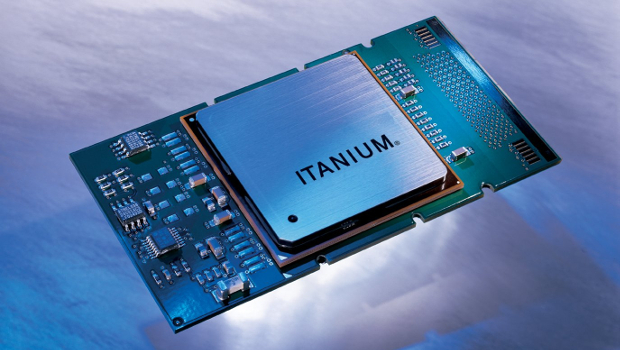Intel's Itanium Is Finally Laid To Rest After Linux Yanks IA-64 Support
Rest in peace Itanium.

While some may have considered Itanium dead when its last CPUs shipped out to customers in 2021, that was just the end of production. The true end of the road is when software support ends, and that's what's finally happening to Itanium. Linux is removing support for Itanium's IA-64 architecture with the 6.7 update of the Linux kernel (via Phoronix), marking the effective end of Itanium.
Itanium was Intel's first 64-bit CPU, powered by the IA-64 architecture, and was jointly developed by Intel and HP. It was a troubled product almost from the start, missing its 1999 launch and slipping to 2001. Its projected revenue was constantly revised downwards year after year.
One of the major obstacles for Itanium's success was that it couldn't run x86 software natively. When AMD came out with a 64-bit version of x86 called AMD64 (now termed x86-64) for its Opteron server CPUs, Intel was forced to launch a brand-new line called Xeon, which used x86-64 instead of IA-64.
Despite all this, Intel and HP tried to keep Itanium alive. While new Itanium CPUs were no longer coming out every year by the late 2000s, Intel did deliver one final update to the Itanium lineup in 2017. HP has also sued Oracle for trying to drop Itanium support, which Oracle claims is unnecessary as Itanium is effectively defunct.
The end of support for IA-64 in Linux is a much bigger deal though, since it's undoubtedly a very important operating system for Itanium CPUs. Obviously, not being able to receive updates is going to hurt for Itanium servers eventually, and it seems inevitable that the last few Itanium users will finally start jumping ship because of it.
Get Tom's Hardware's best news and in-depth reviews, straight to your inbox.

Matthew Connatser is a freelancing writer for Tom's Hardware US. He writes articles about CPUs, GPUs, SSDs, and computers in general.
-
Avro Arrow I guess that the reports of Itanium's death ten years ago were greatly exaggerated. I honestly had no idea that they were still trying to run with that overpriced niche product.Reply
Itanium is a perfect example of everything that's wrong with Intel and it amazes me that they tried to keep it alive for an extra ten years rather than just letting it die. -
Eximo As I recall it was HP that forced them to keep active production going. They had sold Itanium based systems to everyone they could.Reply -
Order 66 Reply
What made Itanium so bad?Eximo said:As I recall it was HP that forced them to keep active production going. They had sold Itanium based systems to everyone they could. -
Order 66 Reply
I'm assuming that means that just like arm, things have to either be specifically coded to take advantage of it, or some form of translation must be used, which usually results in a hit to performance.Crazyy8 said:It wasn't X86-64 -
Eximo It was a proprietary 64 bit standard. It could not run x86 code at all, whereas the competing AMD64 (x86-64) could. Microsoft did compile some versions of Windows for IA64, but it wasn't widely adopted. Mostly used as servers running bespoke software solutions sold with the hardware. But there were other architectures available for servers that had much wider support. SPARC comes to mind.Reply -
JamesJones44 Reply
The real issue was Intel never made good compilers for Itanium. They just assumed that they would get market share because they were Intel and that developers would figure out how to make everything work. However, back when cross compilers were largely just a dream. Hoping developers would fix the problems Intel introduced for them turned out to the main reason Itanium never really had a chance.Order 66 said:What made Itanium so bad?
Had Intel put more effort into helping developers it might have been a success. -
6SixTy Reply
Itanium took conventional notions of how to make computers faster, and just didn't do that.Order 66 said:What made Itanium so bad?